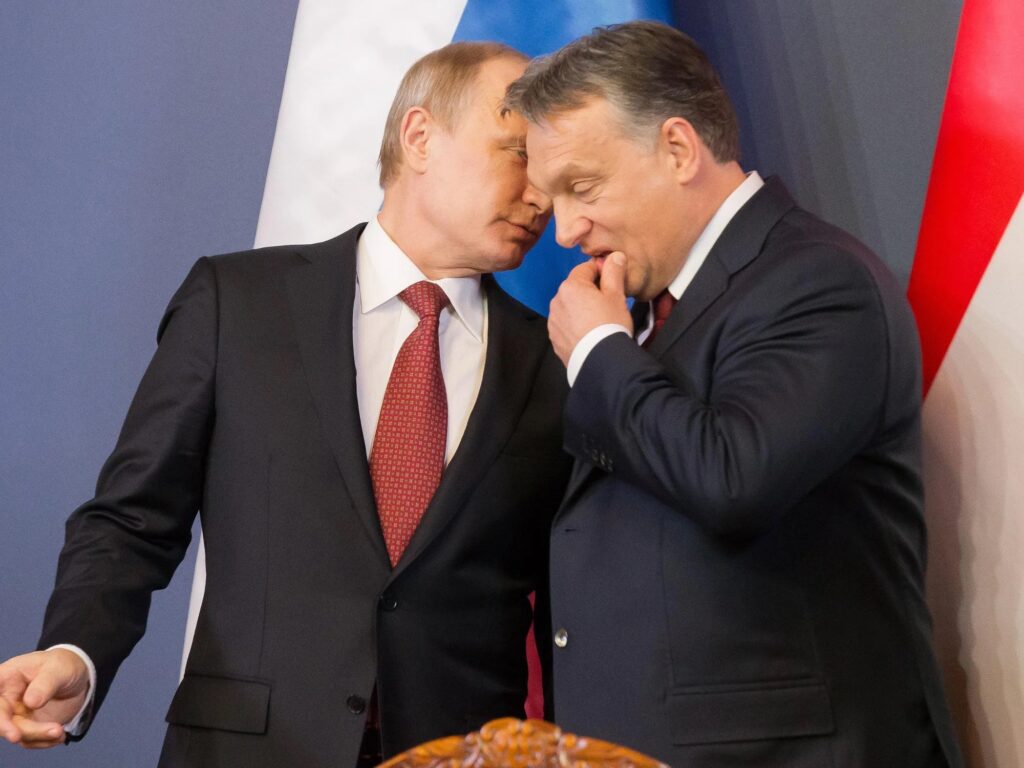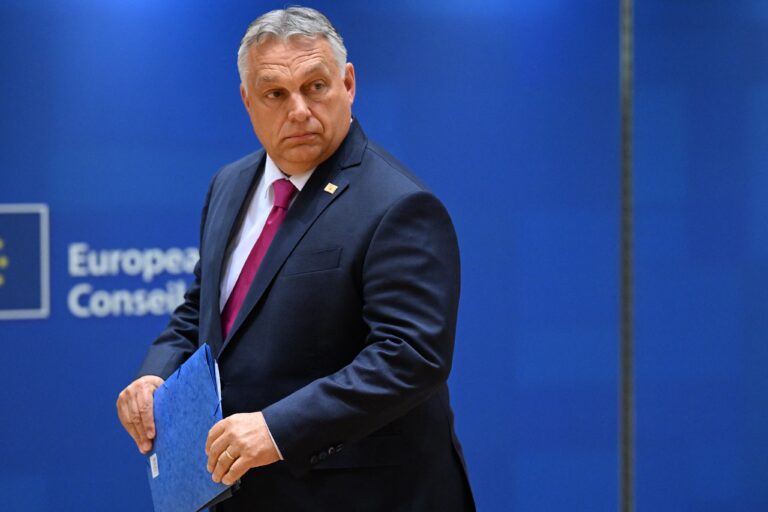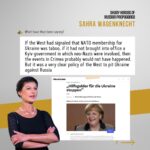A joint investigation by Der Spiegel (Germany) and partners (Hungary’s Direkt36, Belgium’s De Tijd, Austria’s Der Standard) revealed that the Hungarian government under Viktor Orbán ran a covert spy network in Brussels targeting European Union institutions. Hungarian intelligence officers, operating under diplomatic cover at Hungary’s Permanent Representation to the EU, allegedly tried to infiltrate the European Commission for years – especially between 2012 and 2018, a period of escalating tensions between Budapest and Brussels. Their mission was to recruit Hungarian nationals working inside EU bodies and obtain sensitive internal information. Such behavior is virtually unprecedented among EU member states – espionage in Brussels is typically the realm of adversaries like Russia or China, not an EU country spying on the very alliance it belongs to. The European Commission has reacted by setting up an internal task force to investigate these “serious accusations,” underscoring that it takes any illicit intelligence-gathering against its staff and networks extremely seriously. bs “unusually aggressive for an EU member state, resembling tactics associated with regimes like Russia or China,” according to media reports. This overlap is unsurprising given Orbán’s geopolitical orientation: since Russia’s full-scale invasion of Ukraine, Hungary has stood out as one of the few EU states openly aligning with Moscow’s positions – Budapest has blocked EU sanctions on Russia, vetoed military aid to Ukraine, and even opposed Ukraine’s EU/NATO aspirations. Such conduct has isolated Hungary within the Western alliance and raised suspicions about the influence of Russian interests over Budapest’s policies.
Indeed, within European intelligence circles, Hungary’s reliability as a partner is increasingly questioned. Belgian security services, for example, reportedly consider Hungary a “purple country” – no longer a fully trusted ally (blue), but not officially hostile (red) – precisely because of the Orbán government’s pro-Kremlin tilt. As a result, Belgium and other allies limit intelligence-sharing with Hungary, providing only low-risk or broadly available information, while treating Budapest’s own contributions (especially on topics like Russia and Ukraine) with healthy skepticism. Some Western officials even jokingly dub Hungarian officers “matryoshka dolls” in reference to their close ties with Moscow. To be clear, investigators have no concrete evidence that Hungary’s spy service passed EU secrets to the Kremlin. Nonetheless, Orbán’s friendly relations with Vladimir Putin and Budapest’s pattern of echoing Kremlin talking points (e.g. questioning Ukraine’s sovereignty or calling EU critics a “war lobby”) have fueled a perception that Russian influence permeates the Orbán regime’s worldview. This climate of affinity with Moscow likely emboldened Hungary’s espionage activities, even if Russia’s direct hand remains unproven.
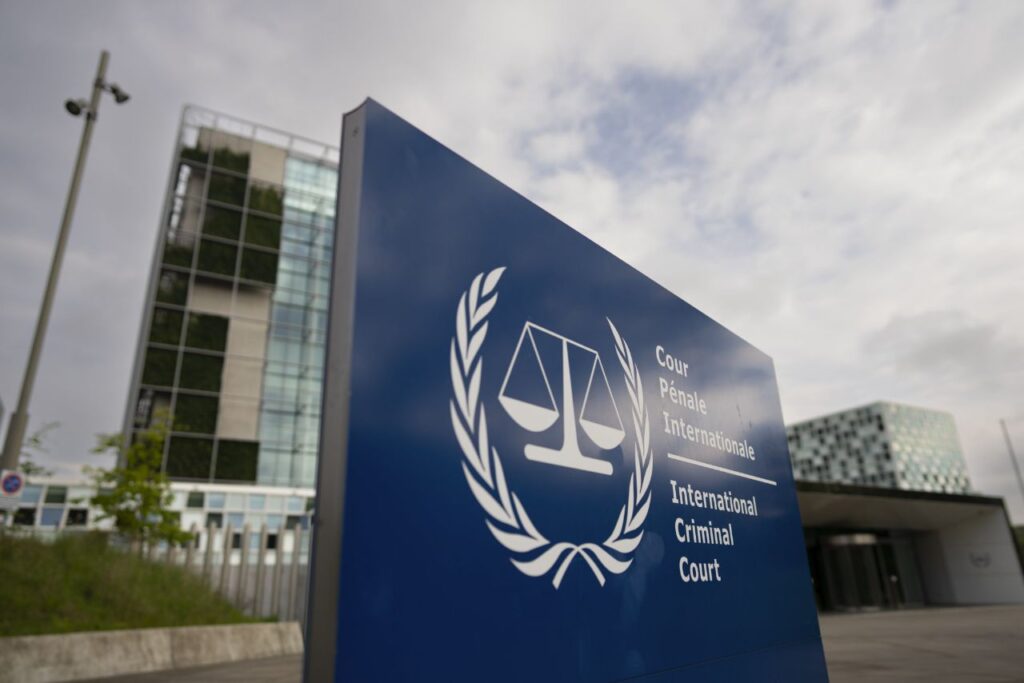
More on this story: Hungary and the ICC: A Test Case for Europe’s Rule-of-Law Commitments
Multiple sources indicate that the Orbán government’s primary motivation was self-preservation and strategic advantage. A Hungarian Commission official who resisted recruitment emphasized that this espionage “no longer served Hungary’s national interest, but rather aimed to strengthen the political and economic power of the Orbán government and its associates”. In other words, the targets were EU actions that might threaten Orbán’s hold on power or his inner circle’s wealth. Brussels and Budapest have clashed for years over Hungary’s erosion of democratic norms – from crackdowns on media freedom and judicial independence to alleged misuse of EU funds by Orbán’s family and allies. According to the investigation, Hungarian spies sought advance warning of any impending EU measures against Orbán’s regime. This included early information on infringement procedures, budgetary sanctions or cuts to EU funding, anti-corruption probes, and rule-of-law penalties. Notably, in a 2015–2017 case previously uncovered by Direkt36, Hungary’s intelligence service surveilled and wiretapped EU Anti-Fraud (OLAF) investigators who were examining a company linked to Orbán’s own son-in-law for embezzling EU funds..
Beyond defensive aims, Budapest also appeared driven by a desire to influence EU decision-making to its benefit. The investigation found that Hungarian agents pressured some recruited officials not just to leak information but even to “edit” or soften EU reports and documents so that they aligned with the Orbán government’s positions. One reported goal was to place more Hungarians (presumably loyal to Fidesz, Orbán’s party) into strategic posts inside EU institutions, thereby amplifying Hungary’s voice and veto power from within. This aligns with Orbán’s long-running strategy of waging his battles in Brussels: he often portrays himself domestically as defending Hungarian sovereignty against “Brussels bureaucrats,” and having moles or sympathizers inside EU bodies could bolster that effort. In Orbán’s narrative, these espionage allegations are merely a smear campaign by foreign intelligence unwilling to accept Hungary’s independent path – his spokesman Zoltán Kovács dismissed the story as a plot to punish Hungary for “stand[ing] for peace” (a reference to Budapest’s refusal to fully back Ukraine). However, the weight of evidence suggests that Orbán’s true motive was not neutrality or peace, but rather leveraging insider knowledge to counter EU pressure and to advance his own agenda, which often dovetails with Moscow’s interests. Essentially, Orbán treated the European Commission as a hostile power to be surveilled – a stunning stance for a sitting EU leader that reflects how antagonistic relations had become.
Investigators believe Hungary’s spies were interested in a broad range of sensitive EU information and plans, especially those touching on Hungary’s political and economic interests. Based on witness accounts and documents, the Hungarian agents (disguised as diplomats in Brussels) targeted Hungarian-born staff within the European Commission who had access to “sensitive files related to Hungary”. By cultivating these insiders, the spy network aimed to gather:
- Early warnings of EU actions against Hungary: This included confidential discussions on rule-of-law sanctions, Article 7 disciplinary proceedings, corruption inquiries, or decisions to withhold EU budget funds from Hungary. Orbán’s operatives wanted to know in advance of any “Brussels action that might threaten his interests” so the regime could prepare counter-moves. For example, intelligence on planned criticisms of Hungary’s media laws or on forthcoming anti-corruption conditions could help Budapest preempt or deflect EU pressure.
- Internal political strategy and deliberations: Hungarian spies sought insight into the EU’s political strategy and negotiating positions, especially regarding areas of conflict with Budapest. Recruited officials were pressed for meeting minutes, draft reports, and informal gossip from within the Commission. Some were even asked to modify wording in internal documents to better reflect Budapest’s viewpoint. By obtaining such inside knowledge, Orbán’s government could calibrate its diplomacy or propaganda – for instance, learning which rule-of-law reforms the Commission might demand, or which member states were critical of Hungary, allowed Orbán to adjust tactics or rally domestic support against “EU dictates.”
- EU foreign policy and sanctions discussions: Given Hungary’s maverick stance in EU foreign policy, Budapest would have high interest in EU deliberations on Russia and Ukraine. Orbán’s envoys in Brussels likely tried to glean information on upcoming sanctions packages, energy policy shifts, or military aid commitments. Knowing the details of proposed Russia sanctions in advance would enable Hungary to lobby for exemptions (as it often did for Russian oil, gas, and nuclear projects) or to alert Moscow unofficially. While specific evidence of Hungary passing EU sanctions plans to the Kremlin has not surfaced, Hungary’s persistent blocking of sanctions and aid suggests that insider knowledge of EU unity (or disunity) on these issues would be extremely valuable to Orbán. One element of the spy ring even involved seconding a Hungarian agent directly inside the European Commission’s security directorate, giving him access to classified data on EU security and possibly energy matters.
- Energy and economic negotiations: Orbán’s government has been famously resistant to EU efforts to reduce dependence on Russian energy. Hungarian spies, operating under cover as “financial and economic” attachés, reportedly infiltrated areas dealing with energy contracts, sanctions on energy companies, or EU plans for energy diversification. Information on discussions about gas supply solidarity, oil embargoes, or nuclear energy oversight would directly affect Hungary’s deals with Russia (such as the Paks nuclear plant expansion by Rosatom). Likewise, fiscal and tax policy intel was– likely to protect Hungary’s low-tax models or to anticipate EU budget rules that might constrain Orbán’s spending priorities.
- EU cohesion and internal dynamics: Finally, Budapest’s operatives would naturally collect any “unofficial rumors” or rifts within the EU that they could exploitbgnes.com. Knowledge of which member states were wavering on a policy, or private tensions between Brussels and other capitals, could help Orbán form blocking coalitions or play one side against another. In essence, anything that revealed the strength or fault lines of EU unity was of use. The Hungarian agents canvassed their targets about colleagues’ positions and access levels, mapping out who in the Brussels ecosystem could be useful. This indicates a systematic effort to understand the EU’s internal workings – not just policy content but also personal networks and institutional vulnerabilities that Hungary’s government could leverage.
In sum, Budapest’s espionage shopping-list ranged from hard data (like draft decisions, classified reports, legal findings) to softer intelligence (political mood, personal gossip), all centered on giving Orbán an edge in his frequent showdowns with the EU. The fact that some officials were induced to sign papers making them “secret collaborators” of Hungary’s IH intelligence service, and even to subtly shape EU reports from the inside, underscores how far this operation went in pursuit of political espionage – far beyond normal information-gathering by diplomats.
The spying revelations have plunged EU–Hungarian relations to a new low, exacerbating an already fraught dynamic. For years, Orbán’s defiance of EU norms made him the enfant terrible of Brussels; now, the notion that his government literally treated the European Commission as a target for espionage has prompted outrage. European Parliament members described the affair as potentially “one of the biggest scandals in the history of the EU” if confirmed. The European Commission immediately launched an internal probe and vowed to bolster security measures to protect its staff and information. There is a palpable sense of betrayal – István Szent-Iványi, a former Hungarian deputy foreign minister, noted that this case proves Orbán’s government views the European Commission and Parliament as “enemies,” a situation he called “scandalous”. Such an adversarial posture by a member state undermines the foundation of trust on which the EU is built.
Concrete political fallout is already emerging. Brussels officials and MEPs are openly questioning whether Hungarian representatives should be privy to sensitive EU discussions going forward. Some in the European Parliament have called for a special inquiry committee, and suggested that if Commissioner Olivér Várhelyi (who led Hungary’s EU mission during the spying period) was complicit, he “cannot remain in his position”. The Commission insists Várhelyi’s 2019 security clearance showed no red flags, but the specter of a compromised Commissioner will hang over EU meetings unless thoroughly addressed. More broadly, this scandal will likely harden the EU’s stance in ongoing rule-of-law disputes with Hungary – for example, giving ammunition to those who argue that billions in EU funds should remain frozen until Hungary changes course. With Hungary scheduled to hold the EU’s rotating presidency in 2024, voices are growing that such a role is untenable under current circumstances (the prospect of an alleged “spy” government setting EU agendas is politically explosive). In short, Orbán’s Brussels spy game has deepened the isolation of his administration, galvanizing calls inside the EU to treat Hungary less as a partner and more as a potential threatbgnes.com.
Within European security and intelligence services, the Hungarian espionage case has triggered serious mistrust and procedural rethinks. Allies now openly worry that “the Union is not prepared for hostile actions by its own members”, as Brussels insiders put itbgnes.com. One immediate consequence is the recalibration of intelligence-sharing with Hungary. Belgium’s security services, for example, confirmed that while they officially still label Hungary a partner, they have stopped sharing any truly sensitive intelligence with Budapest, restricting exchanges to low-sensitivity information that Hungary would anyway receive through general EU or NATO channels. Reports indicate that Hungarian intelligence reports – especially on Russia/Ukraine matters – are met “with healthy skepticism” by Western agencies going forward. In effect, Hungary has been demoted from the inner circle of trust, a striking downgrade for an EU/NATO member.
There are also internal security adjustments within EU institutions. Because the Hungarian spy-ring specifically targeted nationals of their own country in EU jobs, there is now an unfair cloud of suspicion over Hungarian EU staffers, who may find colleagues less forthcoming or their roles curtailed . The European Commission and Parliament are reportedly updating their counterintelligence training and tightening protocols, knowing now that a member-state’s agents exploited procedural loopholes. One vulnerability identified is that EU personnel security clearances rely on vetting by the person’s home country – meaning Hungarian authorities were aware of which Hungarians had access to classified EU material, effectively providing the IH a roadmap of whom to. This loophole is likely to be reviewed to prevent national loyalty conflicts from becoming security backdoors. EU officials warn that they must now guard not just against traditional hostile actors, but the unsettling scenario of an “insider” EU government acting as an adversarybgnes.com. This could lead to structural reforms, such as more centralized EU vetting for certain sensitive posts, or mechanisms to suspend a member state’s access to select intelligence if its loyalty is in doubt.
Hungary’s espionage scandal also carries uncomfortable implications for NATO and Western unity. As a member of NATO, Hungary has access to allied intelligence and military planning – a privilege now viewed with wariness by some partners. Orbán’s pro-Moscow leanings had already led to quiet restrictions (for instance, certain NATO intelligence reports are reportedly withheld or “sanitized” before sharing with Hungary). Now, the revelation that Budapest ran a spy network against EU institutions – and by extension, possibly against NATO interests co-located in Brussels – will heighten calls to limit Hungary’s exposure to allied secrets. NATO operates on mutual trust; a breach within the EU family raises the specter of similar breaches under the NATO umbrella. While no public NATO censure has been issued, defense circles are likely re-evaluating how to handle classified intelligence when Budapest is involved. Allies fear that any information shared with Hungary could potentially be leveraged for Orbán’s agenda or even indirectly leaked to Russia, given the perceived closeness between Hungarian and Russian officials. This could mean Hungary is quietly sidelined from some intelligence flows or sensitive collaborative projects, reducing its role in the alliance’s inner workings.
The broader strategic impact is that Orbán’s Hungary is increasingly seen as a weak link in the Western security chain. At a time when NATO and the EU stress unity against external threats like Russian aggression, an internal ally whose loyalty is questioned presents a serious dilemma. The spy affair may prompt NATO to adopt ad hoc measures – such as more frequent bilateral intel-sharing (excluding Hungary) or using “need-to-know” compartmentalization when Hungary is in the room. It also risks complicating military cooperation and planning. For instance, other Eastern flank countries might hesitate to fully brief Hungary on defense postures, and there could be hesitance in joint operations that involve Hungarian personnel in command structures. Diplomatic frictions are evident as well: Ukraine’s security service recently accused Hungarian agents of spying on its territory, a charge Hungary angrily denied but which underscores the trust deficit with neighbors and allies. All told, the espionage case reinforces a trend where Hungary is treated with caution if not outright distrust in Western alliances, potentially limiting its influence and benefits within NATO.
Der Spiegel’s investigation into Hungary’s EU spy network paints a sobering picture of a member state apparently willing to betray confidences and align with adversarial tactics to protect its regime’s interests. Russia’s indirect imprint is visible in both the methods and motivations of the operation, even as EU partners stop short of accusing Budapest of outright collusion with Moscow. The Orbán government’s gambit – effectively spying on “Brussels” as if it were a foreign foe – has deepened an atmosphere of mutual suspicion. It highlights how Orbán’s domestic illiberal project has spilled onto the European stage, undermining the solidarity and trust that underpin both the EU and NATO. The immediate implications include a serious breach in EU–Hungary relations, damaged trust in Hungarian officials and intelligence, and likely a more isolated Hungary within Western security architectures ʼ. In the longer term, this episode may serve as a wake-up call for the EU to strengthen its internal defenses against insider threats, and for NATO to reaffirm the principle that alliance membership is predicated on shared values and mutual trust – something Hungary will now have to actively work to rebuild. The scandal is, as one MEP noted, a reminder that European treaties did not envision a member state behaving as an adversary, and it presents a stark test of the EU’s ability to respond when one of its own breaks the unwritten rules of unity.
- By “spring in the EU,” one can understand Orbán’s efforts to assert a more muscular Hungarian presence within EU institutions: placing loyalists inside EU bodies, influencing EU agendas from within, challenging EU norms, and destabilizing consensus — in short, trying to reshape the EU from the inside.
- Meanwhile, his “EU collapse” rhetoric warns of disintegration, fragmentation, structural failure, or decline of the Union if reforms are not undertaken. For example, he has argued that the EU is heading for the “abyss” if member states adopt deeper integration without protections, or that Europe could twin debt with statehood, or that the 2028–2035 budget might be the last.
These two strands — internal infiltration and existential critique — may seem contradictory, but in Orbán’s worldview they are mutually reinforcing.
Orbán’s warnings of EU breakdown serve to justify assertive tactics: if the Union is in crisis or inherently unstable, then member states have extra leeway to act in self-defence. In that context, placing loyal actors inside EU institutions is framed not as a hostile takeover, but as a corrective or protective measure in a dysfunctional system. The narrative goes: “since Brussels is failing, Hungary must push back from within.”
Thus, espionage or stealth influence is cast not as betrayal, but as necessary for safeguarding national sovereignty in an institution teetering on collapse. His calls for concentric circles (tiers of integration) are premised on preserving what remains of EU cooperation without fully binding states like Hungary.
2. Risk of Exposure as a Tool of Disruption
By publicly threatening EU collapse, Orbán puts pressure on Brussels to avoid harsh reprisals against Hungary (e.g. freezes of funding, legal measures), lest the crisis discourse be vindicated. If Brussels responds too forcefully, he can amplify the collapse narrative: “see, they are trying to punish dissenting voices, accelerating disintegration.” This gives him some political cover when aggressive tactics (like espionage) come to light.
Orbán’s rhetoric about EU decline dovetails with Russian strategy: casting the EU as fragile, internally divided, and incapable of strong leadership. This undermines European unity, benefiting Russian interests. Through his infiltration efforts, Orbán may hope to disrupt unity from within — consistent with the Kremlin’s preferred tactics — while publicly amplifying the narrative that the EU cannot withstand crisis. In short: crisis rhetoric and internal interference reinforce each other in a hybrid strategy.
Orbán frames Hungary as a “resister” standing up to a crumbling bureaucracy in Brussels. His “spring in the EU” approach is portrayed domestically as fighting for Hungary inside a failing Union. The collapse rhetoric helps maintain popular support: if the EU is depicted as corrupt, overreaching, or broke, then any action Hungary takes against Brussels (even covert ones) is presented not as aggression, but as defense of Hungarians.
By contrast, an overt, normative challenge to the EU’s legitimacy might appear purely antagonistic. But by couching it in urgency and existential threat, Orbán can push harder internally without losing legitimacy among his base.
While the narratives are synergistic, there are inherent contradictions:
- If the EU truly collapses, then the institutional leverage Orbán seeks (resource flows, legitimacy, institutional channels) also collapses. His infiltration gains meaning only as long as the EU remains a functioning structure.
- Espionage and internal subversion risk triggering a severe backlash: sanctioning Hungary, isolating it further, reducing influence — which would undercut the very benefits he seeks from embedding influence inside the EU.
- His collapse rhetoric may erode trust in Hungary among allies, accelerating the very isolation he fears — creating a self-fulfilling prophecy.
Thus, Orbán must balance pushing hard from within while not pushing the EU so far that it reacts destructively.
Orbán’s EU-spring strategy and his rhetoric of EU collapse are two sides of the same coin: he aims to recast the EU as a system in crisis, thereby legitimizing assertive, sometimes opaque, methods to exert Hungarian influence. At the same time, his warnings about collapse provide both internal political cover and external leverage to resist punitive EU measures. The espionage revelations, then, can be seen not as isolated miscalculations but as the operational manifestation of a broader strategy: destabilize from within while claiming defense against degeneration.
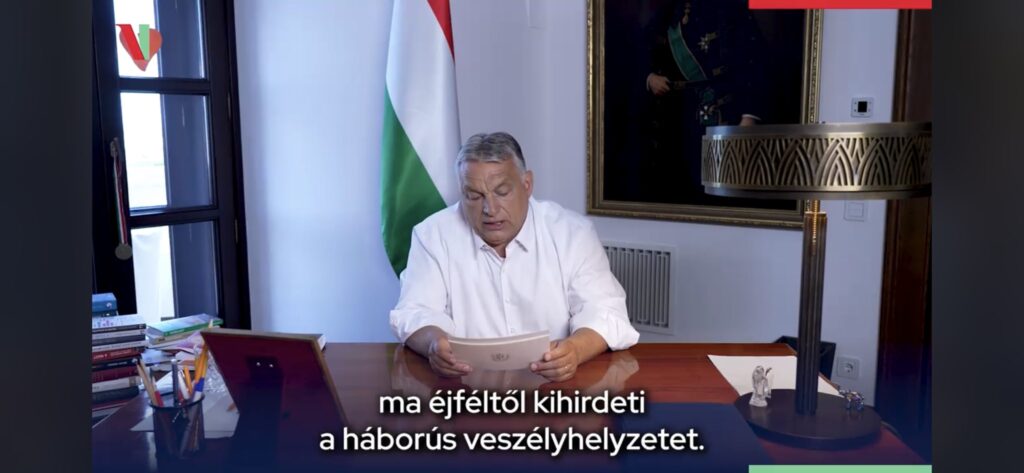
More on this story: Hungary’s Balancing Act: Strategic Risks of Budapest’s Covert Ties with Russia

More on this story: Hungary: Trojan Horse in Russia’s Proxy War Against Europe
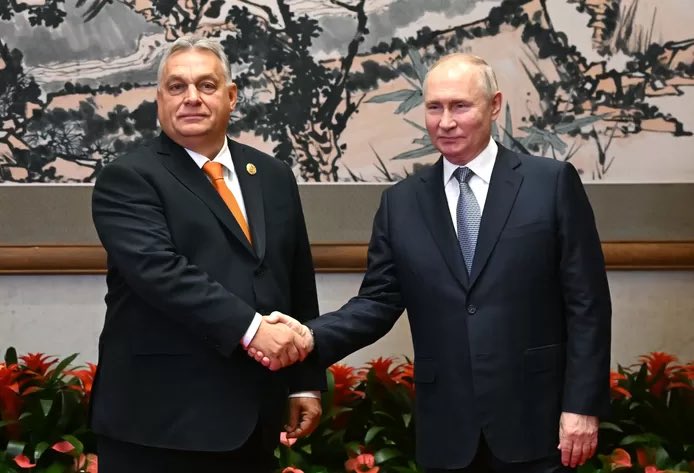
More on this story: Viktor Orbán’s vulnerability: ways to blackmail Hungary’s Prime Minister

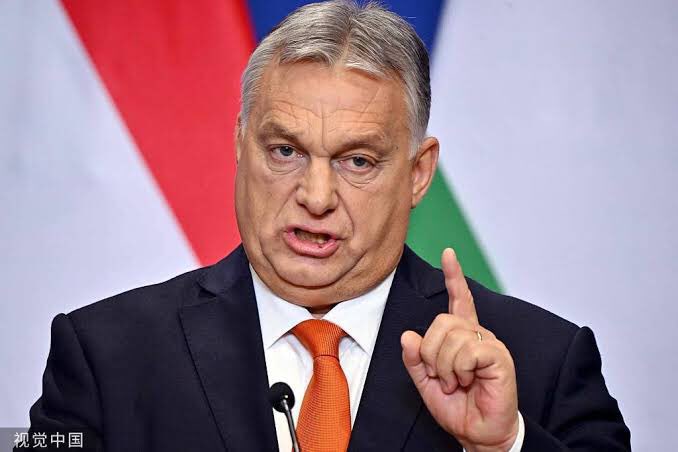
More on this story: “Viktor Orbán’s Russian Alignment: A Threat from Within the European Union”

